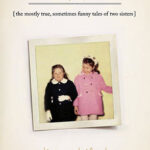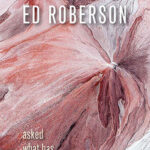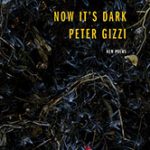Today we are remembering and celebrating the life of Clayton Eshleman.
In light of the recent passing of Eshleman, we honor his life and his extraordinary contributions to poetry and translation. Clayton was born in Indianapolis, Indiana, in 1935. He has a BA in philosophy and an MAT in English literature from Indiana University and lived in Mexico, Japan, Taiwan, Korea, Peru, France, Czechoslovakia, and Hungary. He was a Professor Emeritus, English Department, Eastern Michigan University. Since 1986 he had lived in Ypsilanti, Michigan, with his beloved wife Caryl, who acted as his primary reader and editor for over forty years.
Eshleman has been at the heart of American poetry since the early 1960s. His poems, critical essays, and translations of noteworthy poets as diverse as César Vallejo, Aimé Césaire, Pablo Neruda, Antonin Artaud, Vladimir Holan, Michel Deguy, Henri Michaux, and Bernard Bador, earned him international acclaim. He was often described as having a particular stubbornness that allowed him to produce poems with deep, imaginative insight, unlike other poets. His work appeared in over 400 magazines and newspapers and has been translated into eight languages. He gave readings and lectured to audiences at universities and other venues around the world.
His work is widely known and lauded. Eshleman has been honored with many awards and honors, including a National Book Award for translation, a Guggenheim Fellowship, numerous grants from the National Endowment for the Arts and the National Endowment for the Humanities, two Landon Translation Prizes from the Academy of American Poets, and a Hemingway Translation Grant. In 1994, he was a fellow at the Rockefeller Study Center in Bellagio, Italy, where he wrote a 50 page poem on Hieronymus Bosch’s The Garden of Earthly Delights. In 2007 University of California Press published his translation of Vallejo’s verse, The Complete Poetry of César Vallejo, a work on which he spent spent over forty years.

Eshleman was the founder and editor of two of the most important literary journalism the latter half of the 20th century: Caterpillar (1967–1973, 20 issues) and Sulfur (1981–2000, 46 issues). Sulfur magazine presented an overview of innovative writing from around the world, including Norman O. Brown, Jorie Graham, James Hillman, Mina Loy, Ron Padgett, Octavio Paz, Ezra Pound, Adrienne Rich, Rainer Maria Rilke, William Carlos Williams, and many more. Each issue featured a diverse offering of poetry, translations, previously unpublished archival material, visual art, essays, and reviews. In the course of its twenty year run, Sulfur maintained a reputation as the premier publication of alternative and experimental writing. A Sulfur Anthology, containing a generous selection of highlights from the journal’s nearly twenty year run, and was published by Wesleyan University Press in December 2015.
Collections and Translations

Wesleyan University Press also published two prose works authored by Eshleman. Companion Spider is a book of essays on poetics, translation, and publishing; and Juniper Fuse: Upper Paleolithic Imagination & the Construction of the Underworld is a groundbreaking collection of poetry and prose that is the culmination of Eshleman’s twenty-five years of research into the origins of image-making via the Ice Age painted caves of southwestern France.
Concerning Juniper Fuse, Gary Snyder wrote:
“Archeologists and artists have written on southwestern European cave art, but none have given us a book like this. Clayton Eshleman has explored and inspected almost all of the great cave art of southwestern Europe including many caves that are not open to the public and require special permission. Now with visionary imagination, informed poetic speculation, deep insight, breathtaking leaps of mind, Eshleman draws out the underground of myth, psychology, prehistory, and the first turn of the human mind toward the modern. Juniper Fuse opens us up to our ancient selves: we might be weirder (and also better) than we thought.”
In the foreword of Companion Spider, Adrienne Rich wrote:
“Clayton Eshleman has gone more deeply into his art, its process and demands, than any modern American poet since Robert Duncan and Muriel Rukeyser. As a poet, Eshleman has wrestled with his vocation and, in some senses, created himself through poetry. He has written on the self-making and apprenticeship of the poet and of the poet as translator as no one else in North America in the later twentieth century. He has written perceptively about visual art in its relationship to contemporary poetics. And he has delivered stinging critiques of mediocrity and cautiousness in the standardizing of poetic canons.”
 |
 |
Eshleman’s work as a translator includes three volumes of Aimé Césaire’s poetry published by Wesleyan. He worked with Césaire to create an accurate translation of the texts.
Those three volumes produced were, Notebook of a Return to the Native Land, translated with Annette Smith, and 1939 Original Notebook of a Return to the Native Land, translated with A. James Arnold, are both available, as bilingual editions. Solar Throat Slashed: The Unexpurgated 1948 Edition, also translated with A. James Arnold, is the first bilingual edition of the work. In 2017 Wesleyan published The Complete Poetry of Aimé Cesaire, also a bilingual edition, co-translated with Arnold.
The Essential Poetry (1960–2015)

The Essential Poetry (1960–2015), published by Black Widow Press, is a collection of poems dedicated to bringing to light the art and politics of the human experience. This definitive collection spans the entirety of Eshleman’s poetic output. It is an essential reference work for Eshleman readers. In this interview, Into the Depths of Human Soul Making: An Interview with Clayton Eshleman, he discusses The Essential Poetry (1960–2015) and more.
We thank Clayton Eshleman and remember him for his impressive dedication and contributions to poetry.



































